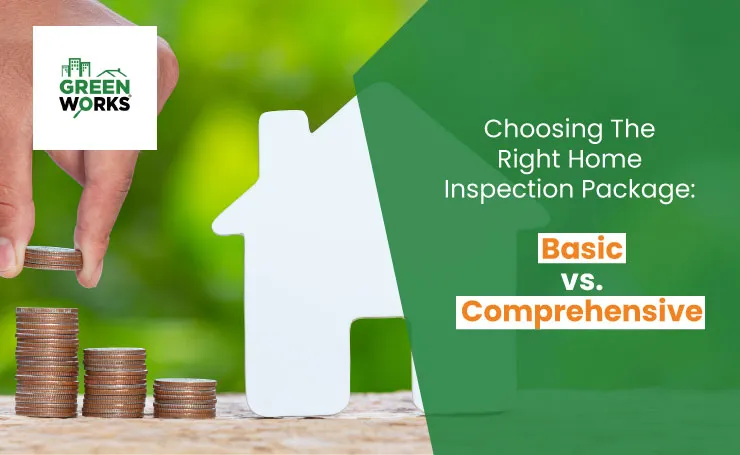Posts

Is Radon Testing Required to Sell a Home in Dallas?
Did you know that 5-10% of homes in North Texas have high radon levels that exceed the EPA action limit? This means that every home out of ten in this region goes through high radon levels. Such high radon levels can lead to significant health issues that primarily affect the lungs. This is just one major consequence of having high radon levels in your home and why you should test it before putting your house on the market. Yes, radon testing is not a requirement for selling a house in Dallas, but it is highly recommended. After all, you don’t want to draw away potential buyers.
This might seem like an additional cost for you, but once you get the radon levels tested, there will be a much lesser chance for the buyers to negotiate the asking price, let alone draw away from the deal. Plus, you will be sure of your home’s condition, so this can also serve as a plus point for your home sale. Besides, if you still find professional home inspections to be very costly, you can get the DIY test done. It might not be that accurate, but at least you can show the buyer that you’re a transparent and responsible seller.
In this blog, we will talk about why you should always opt for radon testing before selling your house. We will also answer whether it will be beneficial to get the radon test with the home inspection or separately. Lastly, we will cater to how your presence during the test can make a difference.
Why You Should Get A Radon Test Before Selling Your Dallas Home?
Let’s have a more detailed look at why you should get a radon test before selling your Dallas home. Here are the top four reasons.
Health and Safety
Radon is a colorless, odorless radioactive gas that can accumulate to high levels in your house, posing significant health risks. The most prominent health risk related to radon is lung cancer. FYI, the EPA estimates that radon causes about 21,000 lung cancer deaths annually in the U.S. This is huge! By getting a professional radon test for your home, you can ensure that your potential homebuyers will be safe from such major health concerns of radon. In fact, not only them but this can also protect you and your family as you will be residing in that house until the deal is finalized and the buyer’s family moves in.
Legal Disclosure Requirements
Selling a home is not a child’s play. You need to follow different regulations, such as the ones highlighted in the Texas Property Code Section 5.008. As per this, when you are selling the property, then you need to disclose any known environmental hazards, including radon to the potential buyers. So, getting a radon test is an essential tool for following the rules set by the Texas government for the sellers. But, since the law doesn’t specify getting a professional radon test, you can also opt for DIY radon testing, however, their accuracy will not be promising.
Negotiation Advantage
You are not the only one who will get the radon tests done for your home –the buyers will conduct one for themselves as well. Once they find high radon levels in their test result, then it’d be fair for them to ask for some negotiation in the asking price. For this, it is better to get the test before listing your property. If high radon levels are found, then you may mitigate those. This way, when the buyers conduct their tests, then the results will come out negative (no high radon levels) and you will be saved from negotiation.
Marketability
When you get the radon levels tested for your home then there is a higher chance for the buyers to incline towards your home. If your potential buyers have a family with young children or pregnant women, then they could also be the future residents of your house. With radon tests in place, you can set your property apart from others on the market.
Should You Get the Radon Test with Home Inspection?
It is better if you get your radon test with the home inspection. This way you will be able to ensure a thorough evaluation of your property’s condition and know better about whether there are any health hazards. Besides this, it will also be quite cost-effective as compared to getting both services separately. In fact, if you’re lucky enough then your home inspection company might also be offering bundled packages, so you can save some dollars there. By identifying and addressing any radon issues early, you can prevent potential deal-breakers and avoid last-minute complications during the selling process. Furthermore, disclosing radon test results upfront demonstrates transparency and builds trust you’re your potential buyers, enhancing the marketability of your property. So, this combined approach helps you ensure a smoother transaction and peace of mind for you and the future residents of your home.
Should You Be Present During Radon Test?
It is not strictly necessary for you to be present during a radon test. However, you can be there to ensure that the proper measures are taken care of during the testing process. If you’re testing for radon levels through a radon test kit, then you can be there for the setup and retrieval of the testing device. This can give you peace of mind, knowing that proper procedures are followed. Besides, radon tests typically take 48 hours or more to complete, requiring the testing device to remain undisturbed to ensure accurate results. However, if you are getting a professional radon test then you don’t need to be present. Professional radon testers are trained to handle the process correctly, so your presence won’t make a difference.
Don’t forget to do the following when conducting a DIY test:
- Follow the instructions closely
- Close your house properly
- Take the samples with extreme caution
- Be present during the initial setup and final retrieval
How to Test for Radon?
Testing for radon is a simple process that can be conducted either by a professional or by using a home test kit (as we have already mentioned). So, first, you need to decide whether you want to hire a professional or use a do-it-yourself kit, both of which are widely available and reliable. The test should be conducted in the lowest livable area of your home, where you spend a significant amount of time. Ensure that windows and doors remain closed as much as possible for at least 12 hours before and during the test to maintain accurate conditions. Place the testing device at the appropriate location, and make sure these are away from the following:
- Drafts
- High humidity
- Exterior walls
Short-term tests typically last from 2 to 7 days, while long-term tests, which provide a more comprehensive assessment, can last from 90 days. Once the test period is complete, seal the device as instructed and send it to a lab for analysis if using a home kit. The results will inform you if radon levels in your home are within safe limits or if mitigation measures are necessary to reduce high radon levels.
If you are going to hire a professional for a radon test, then you can contact GreenWorks Inspections. Whether you’re buying, selling, or simply maintaining your property, our expert inspectors provide accurate and reliable results. Don’t wait—schedule your radon test today and gain peace of mind knowing your home is free from harmful radon levels. Contact GreenWorks Inspections now to book your appointment and protect your family’s health!



